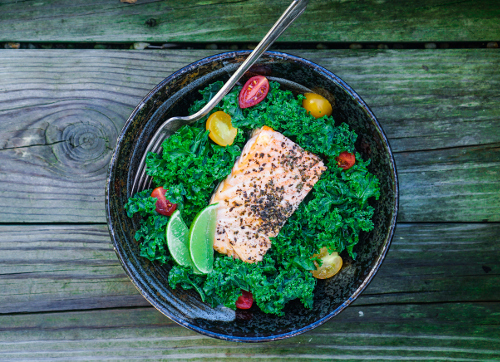 You rely on doctors to let you know when you’re not healthy. They demand your ultimate trust and should be able to identify and treat conditions that put your health, livelihood, and life at risk. So when they get it wrong, it really makes me mad. The latest news pushing my buttons in this way is related to age-related macular degeneration (AMD).
You rely on doctors to let you know when you’re not healthy. They demand your ultimate trust and should be able to identify and treat conditions that put your health, livelihood, and life at risk. So when they get it wrong, it really makes me mad. The latest news pushing my buttons in this way is related to age-related macular degeneration (AMD).
Some brand-new research is showing that doctors aren’t catching the warning signs for the biggest cause of blindness in America, which, in turn, is leading me to question their vision.
Doctors Blind to Warning Signs of AMD
According to a study conducted by researchers at the University of Alabama at Birmingham, 25% of people going to an optometrist or ophthalmologist are being given a “thumbs up” for eye health even though they possess warning signs of AMD.
The research, published online in JAMA Ophthalmology, followed 644 people age 60 and over after they were found to have normal eye health in their most recent examination by an optometrist or ophthalmologist. The people were re-examined by researchers at the university, and it became clear that 25% of the participants showed evidence of AMD. The problem, it seems, is that eye doctors don’t yet have the tools to adequately identify potential cases of AMD—a condition currently affecting an estimated 14 million Americans.
How You Can Prevent AMD
What makes this worse is that AMD is not only preventable, but its onset can be delayed rather easily; however, the longer you wait to do something about it, the more dangerous it can become—eventually leading to blindness or severely impaired vision. So, if you can’t rely on your doctors, what can you do? A lot, actually.
AMD can be prevented, or at least delayed, by maintaining an active lifestyle, not smoking, and—most importantly—adopting a healthy diet. Diet is one of the biggest factors for keeping AMD at bay. The nutrients that offer the best defense are carotenoids (beta-carotene, lutein, zeaxanthin), vitamins C and E, zinc, and omega-3 fatty acids.
Each of these nutrients possesses antioxidant and anti-inflammatory properties. Research has shown diets high in these nutrients can delay the onset of or significantly reduce the chance of developing AMD. There’s evidence that people who eat omega-3-rich fish two to three times per week are much less likely to get AMD while those with diets above median-level requirements of carotenoids, vitamins C and E, and zinc, have a 35% lower risk for getting AMD.
Best Sources of Eye-Healthy Nutrients
So, where can you turn to get these valuable nutrients that may save you from your doctor’s mistake and maintain your vision?
Here are some of the best food sources to reduce the risk of AMD:
1. For carotenoids and vitamin C:
- Kale
- Collard greens
- Bell peppers
- Broccoli
- Sweet potatoes
- Spinach
- Green peas
- Pumpkin seeds
- Carrots
- Peaches
- Blueberries
- Oranges
- Grapefruit
Note: Virtually any bright fruit or vegetable, particularly orange ones, and leafy greens would be an excellent source.
2. For vitamin E:
- Sunflower seed kernels
- Almonds
- Peanuts
- Fortified cereals
- Wheat germ oil
- Canned tomato products
3. For zinc:
- Alaskan king crab
- Lamb
- Bulgur
- Dried beans
- Pork
- Pumpkin seeds
- Dark poultry meat
- Whole wheat flour
4. For omega-3:
- Salmon
- Mackerel
- Herring
- Sardines
- Albacore tuna
Sources
Preidt, R., “Docs May Miss Major Cause of Vision Loss in Seniors,” Medline, April 27, 2017; https://medlineplus.gov/news/fullstory_164989.html, last accessed May 8, 2017.
University of Alabama at Birmingham, “Underdiagnoses of age-related macular degeneration, findings suggest,” Science Daily, April 27, 2017; https://www.sciencedaily.com/releases/2017/04/170427140110.htm, last accessed May 8, 2017.
